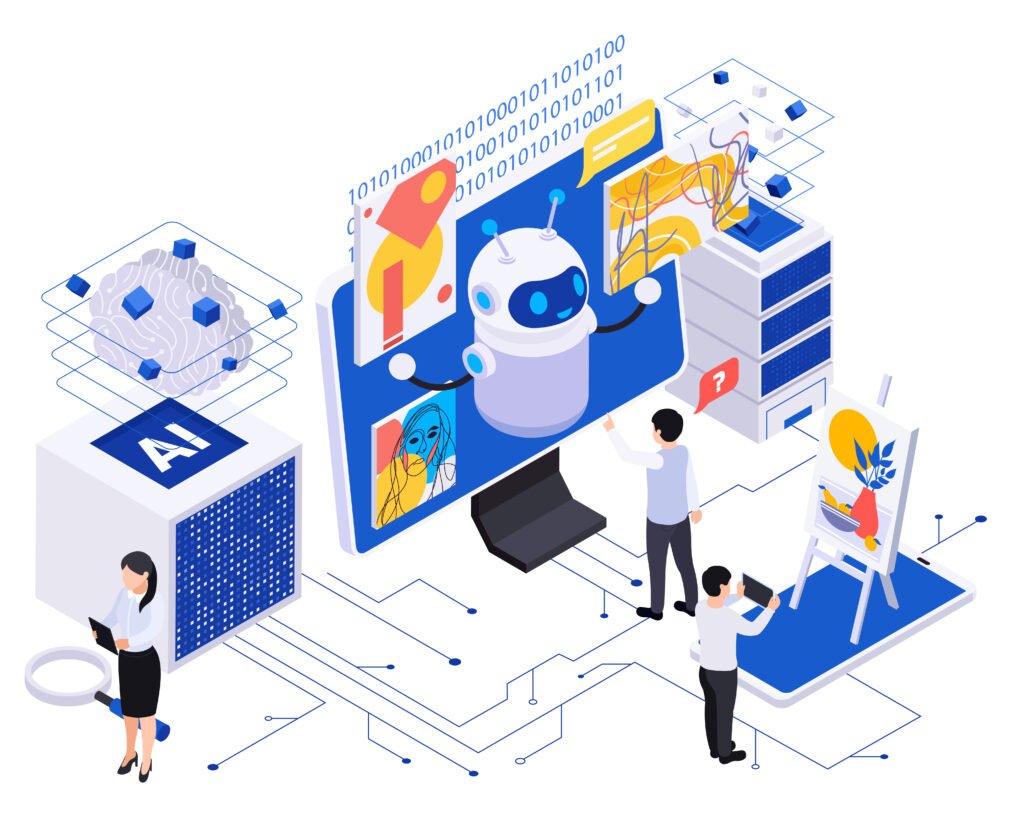As technology continues to advance at an unprecedented pace, governments worldwide are scrambling to regulate Big Tech Regulations and protect user data. The United States and the European Union are leading the way with stringent data privacy laws and compliance requirements designed to ensure fair competition and safeguard personal data.
In 2025, regulations such as the EU AI Act, updates to data protection regulations, and evolving US policies are redefining the landscape for artificial intelligence (AI), machine learning, data sharing, and social media platforms. This article explores how these policies impact businesses, consumers, and international data flows.
You may like this:
- You Need Cyber Insurance Top 10 Shocking Cyber Attacks
- Best Cyber Insurance Policies for Small Businesses in 2025: Top Coverage Options & Providers
- AI & Machine Learning best Breakthroughs: Transforming Healthcare, Education, and Automation in 2025
1. Understanding Data Privacy Laws in 2025
1.1 The Evolution of Data Protection Tech Regulations
Governments have long recognized the need for robust data privacy tech regulations, but recent technological advancements have accelerated these efforts. Major regulatory developments include:
- The General Data Protection Regulation (GDPR) Update (EU) – Strengthening user rights regarding data access, data sharing, and AI governance.
- The US Data Privacy and Protection Act – Implementing a federal data protection framework similar to GDPR.
- The AI Act (EU) – Aiming to regulate AI models, particularly generative AI, ensuring ethical and responsible development.

1.2 International Data Flows and Compliance Requirements
As businesses operate globally, cross-border data flows tech regulations have become a central regulatory concern. Governments now require companies to meet strict compliance requirements when transferring personal data internationally. New agreements, such as the EU-US Data Privacy Framework, dictate how companies handle international data and ensure compliance with both European and US regulations.
1.3 AI Systems’ Function in Data Privacy
Technologies driven by AI that process vast volumes of personal data include artificial intelligence (AI) and machine learning systems. Tech Regulations now focus on preventing data breaches, ensuring transparency in AI decisions, and implementing ethical AI principles. Ensuring compliance with these regulations is essential for companies utilizing AI.
2. The EU AI Act: Regulating Artificial Intelligence
2.1 What Is the EU AI Act?
The EU AI Act is the world’s first comprehensive regulatory framework designed to oversee AI applications. It categorizes AI models based on risk levels:
- Unacceptable risk: Banned AI applications, such as social scoring systems.
- High-risk: AI in medical devices, hiring, or credit scoring, requiring strict oversight.
- Limited risk: AI-driven chatbots requiring transparency disclosures.
- Minimal risk: AI used for entertainment or customer service, subject to minimal regulation.

2.2 Impact on Generative AI and Machine Learning
Generative AI, including platforms like ChatGPT, faces new regulations to ensure that AI models do not propagate harmful biases or misinformation. The EU AI Act mandates data privacy laws compliance for AI-generated content and increased oversight of AI training data.
2.3 Data Protection tech Regulations for AI Companies
Companies deploying AI technologies must follow strict data protection regulations, ensuring ethical use and protection against data breaches. These regulations require companies to:
- Conduct AI impact assessments.
- Ensure AI decisions remain explainable and fair.
- Implement human oversight mechanisms for high-risk AI applications.
3. How the United States Is Regulating Big Tech
3.1 Federal vs. State-Level tech Regulations
Unlike the EU’s centralized approach, the US has a fragmented regulatory landscape. Key developments include:
- The Federal AI Governance Act – Providing national guidelines for AI models and machine learning applications.
- The California Consumer Privacy Act (CCPA) 2025 Update – Expanding data protection rights similar to GDPR.
- The Digital Markets Act – Targeting monopolistic practices by major tech firms.
3.2 Social Media and Data Sharing Laws
US regulators are increasingly scrutinizing social media platforms for tech regulations excessive data sharing and privacy violations. New laws demand:
- Clear disclosure of data access policies.
- User control over shared personal data.
- Stricter advertising and tracking transparency measures.
3.3 Combating Cybersecurity Threats
To address growing cyber threats, the US government has introduced mandatory security standards for companies handling sensitive data. These include:
- Zero-trust security models for enterprise data.
- AI-powered cybersecurity solutions for proactive threat detection.
- Regulations ensuring quantum-resistant encryption for safeguarding international data flows.
4. The Impact on Businesses and Consumers
4.1 Businesses: Navigating Compliance Requirements
For businesses, the new regulatory landscape means greater compliance requirements, including:
- Implementing AI ethics frameworks.
- Strengthening cybersecurity measures.
- Ensuring transparent data usage policies.

4.2 Consumers: More Control Over Personal Data
Consumers in 2025 benefit from stronger data privacy regulations, allowing them to:
- Control data access and request data deletion.
- Opt out of AI-driven profiling.
- Receive clearer explanations about how AI systems use their data.
5. Future Trends: What Lies Ahead for Big Tech Regulation?
5.1 AI Governance Beyond 2025
With AI continuing to evolve, future tech regulations may include:
- Stricter AI-generated content verification.
- Global AI ethics committees to oversee industry developments.
- AI-specific labor laws to protect workers from automation displacement.
5.2 Strengthening Cybersecurity Measures
Expect further investments in quantum-resistant encryption and AI-driven security to combat evolving cyber threats. Governments may mandate industry-wide security audits for AI-based platforms.
5.3 The Role of Big Tech in Shaping Regulations
Big Tech companies will continue lobbying for self-regulation. However, governments are pushing for legally binding AI ethics, ensuring fair competition and responsible technology use.
Final Thoughts
In 2025, Big Tech regulations and data privacy laws are reshaping how companies handle personal data and develop AI systems. The EU AI Act, stricter US compliance requirements, and growing concerns over cyber threats are setting new standards for transparency, security, and fairness in technology.
Businesses must navigate compliance requirements, while consumers gain more control over their data. As AI continues to evolve, future regulations will focus on ethical AI development, data protection regulations, and international data flows.
By staying informed about these changes, companies can ensure compliance, and individuals can better understand how their data is being used in the digital era.
The landscape of Big Tech regulations and data privacy is rapidly evolving in 2025, with the United States and the European Union taking significant steps to shape the digital future. The EU AI Act, stricter data privacy laws, and new compliance requirements are forcing businesses to prioritize ethical AI development, data security, and transparent data-sharing practices. As AI systems become more sophisticated, governments worldwide will continue refining regulatory frameworks to balance innovation with consumer protection, ensuring a safer and more responsible digital ecosystem.
FAQS
What Are the Latest Data Privacy Laws in the US and EU for 2025?
As data privacy tech regulations continue to evolve, the United States and the European Union have introduced stricter laws to enhance consumer protection, regulate data flows, and ensure compliance for businesses.
US Data Privacy Laws in 2025
- American Data Privacy Protection Act (ADPPA) – A proposed federal privacy law aiming to unify state regulations.
- California Privacy Rights Act (CPRA) – Enhances CCPA by giving users more control over their personal data.
- Virginia CDPA & Other State Laws – Virginia, Colorado, Connecticut, and Utah enforce new data protection laws similar to GDPR.
- AI & Data Compliance – Increased FTC regulations on AI systems, machine learning, and data access practices.
EU Data Privacy Laws in 2025
- EU AI Act – First global regulation for AI models, ensuring ethical AI development and data protection compliance.
- General Data Protection tech Regulation (GDPR) Updates – Stricter rules on data sharing, international data transfers, and social media privacy.
- Digital Services Act (DSA) & Digital Markets Act (DMA) – Enhancing transparency in big tech and social platforms.
Ensuring Compliance with the New Regulations
- Businesses must update privacy policies and implement robust data security measures to avoid data breaches.
- Cross-border data transfers require strict adherence to US-EU frameworks.
- Companies using AI-driven technologies must follow AI governance laws to ensure transparency.
The Future of Data Privacy
With growing concerns over data security, the US and EU are setting global standards for digital tech regulations. Businesses must stay proactive to remain compliant in an era of AI-driven data privacy challenges.
Optimize Your Compliance Strategy Now to Avoid Legal Risks!
What Are the Penalties for Data Breaches Under the New Regulations?
With stricter data privacy laws in the United States and European Union, companies face hefty fines and legal actions for failing to protect personal data. The US and EU have introduced tougher penalties to ensure compliance with data protection tech regulations and minimize the risk of data breaches.
US Data Breach Penalties in 2025
- California Privacy Rights Act (CPRA) & State Laws
- Fines of $2,500 per unintentional violation and $7,500 per intentional violation.
- Additional penalties for mishandling sensitive personal data.
- Federal Trade Commission (FTC) Enforcement
- Businesses violating data privacy laws face multi-million-dollar fines.
- Repeat offenders could be banned from handling consumer data.
- American Data Privacy Protection Act (ADPPA) (Pending)
- If enacted, companies could face civil penalties and private lawsuits for data breaches.
EU Data Breach Penalties in 2025
- General Data Protection tech Regulation (GDPR) Updates
- Fines of up to €20 million or 4% of global revenue, whichever is higher.
- Strict enforcement on AI systems, data sharing, and international data transfers.
- EU AI Act & Digital Services Act (DSA)
- Non-compliance with AI transparency rules could lead to fines up to 6% of annual revenue.
- Social media platforms must protect user data or face high penalties.
Ensuring Compliance & Avoiding Data Breach Fines
- Regular Security Audits: Implement AI-driven monitoring to detect data vulnerabilities.
- Strong Encryption & Access Controls: Prevent unauthorized data access and data leaks.
- Compliance with Global tech Regulations: Follow GDPR, CPRA, and AI governance rules for cross-border data protection.
The Future of Data Privacy Compliance
With rising cybersecurity threats, businesses must prioritize data security to avoid legal consequences. Failure to comply with new data protection tech regulations could result in severe financial and reputational damage.
Protect Your Business Now – Strengthen Your Data Privacy Strategy!
How Can Companies Ensure Compliance with International Data Laws? (2025 Guide)
As global data privacy tech regulations become stricter, businesses must take proactive steps to comply with international data laws like GDPR (EU), CPRA (US), and the EU AI Act. Failure to follow data protection tech regulations can result in hefty fines, reputational damage, and legal action.
Key Steps to Ensure Compliance with Global Data Privacy Laws
1. Understand Regional Data Privacy tech Regulations
- United States: Comply with CPRA (California), CDPA (Virginia), and upcoming American Data Privacy Protection Act (ADPPA).
- European Union: Follow GDPR, EU AI Act, and Digital Services Act (DSA).
- International Data Transfers: Adhere to the EU-US Data Privacy Framework for cross-border data flows.
2. Implement Robust Data Protection Measures
- Data Encryption: Encrypt personal data to prevent unauthorized access.
- Access Controls: Restrict AI systems and machine learning models from accessing sensitive data without consent.
- Incident Response Plan: Prepare for data breaches to minimize damage and ensure compliance with reporting requirements.
3. Maintain Transparent Data Policies
- Privacy Policies: Update website policies to reflect new data sharing regulations.
- User Consent Management: Use cookie banners and opt-in mechanisms for collecting user data.
- AI Compliance: Disclose how AI models handle user data under the EU AI Act.
4. Conduct Regular Compliance Audits
- Perform risk assessments for data protection vulnerabilities.
- Hire compliance officers to monitor US and EU data privacy laws.
- Ensure third-party vendors follow international data security standards.
5. Train Employees on Data Privacy & Security
- Educate staff on GDPR, CPRA, and AI data regulations.
- Implement strict social media & data sharing policies to prevent leaks.
The Future of International Data Compliance
With evolving data privacy regulations, businesses must stay ahead of legal changes to avoid financial penalties and data breaches. Ensuring compliance with global data laws will build consumer trust and protect brand reputation.








